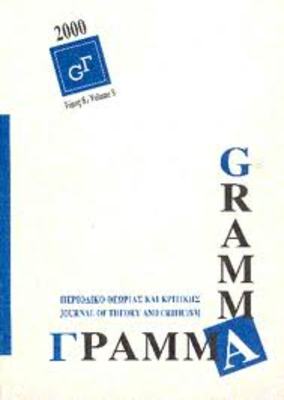A freedom transcending mere materiality : Catch-22, temporality, trauma, and responsibility
Part of : Γράμμα : περιοδικό θεωρίας και κριτικής ; Vol.16, No.1, 2008, pages 23-44
Issue:
Pages:
23-44
Section Title:
Writing war
Author:
Abstract:
This article explores the relationship between temporality, trauma and responsibility in the novel Catch-22. Borrowing from psychoanalytic theories of the drive, I develop a reading of the temporality of trauma in general, and as related to the drives. This involves a delayed-reaction, non-linear articulation of the trauma that is intimately linked in Catch-22 to the ways in which Yossarian is exposed to threats to his bodily integrity. In response to an exposure of the finitude of his bodily subjectivity, an initially passive attitude is engendered in Yossarian in response to his traumatic "primal scene," the death of Snowden. This article is concerned with demonstrating how Yossarian ultimately surpasses this sense of passivity and finitude in order to take responsibility for his own trauma and the fantasies surrounding it. Whilst the drives and trauma might be seen as ex-trinsic factors that serve to limit or curtail subjective agency, with a more nuanced understanding of the drives, trauma, and finitude itself, we can see in Catch-22 an example of the paradoxical freedom that is manifested in Yossarian in relation to his symptom. The manifest sense of responsibility that Yossarian owns to is, however, matched by a latent responsibility that is not broached in the text. The final part of this article shows how, in comparison with Kurt Vonnegut's Slaughterhouse-Five, Catch-22 elides further responsibilities that are left latent within the text. As such, the comparison between the two texts dramatises the contradictions and ambivalences involved in the act of representing war.
Subject:
Subject (LC):
Notes:
Revisiting crisis / reflecting on conflict: American literary interpretations from World War II to Ground Zero.Περιέχει βιβλιογραφία




